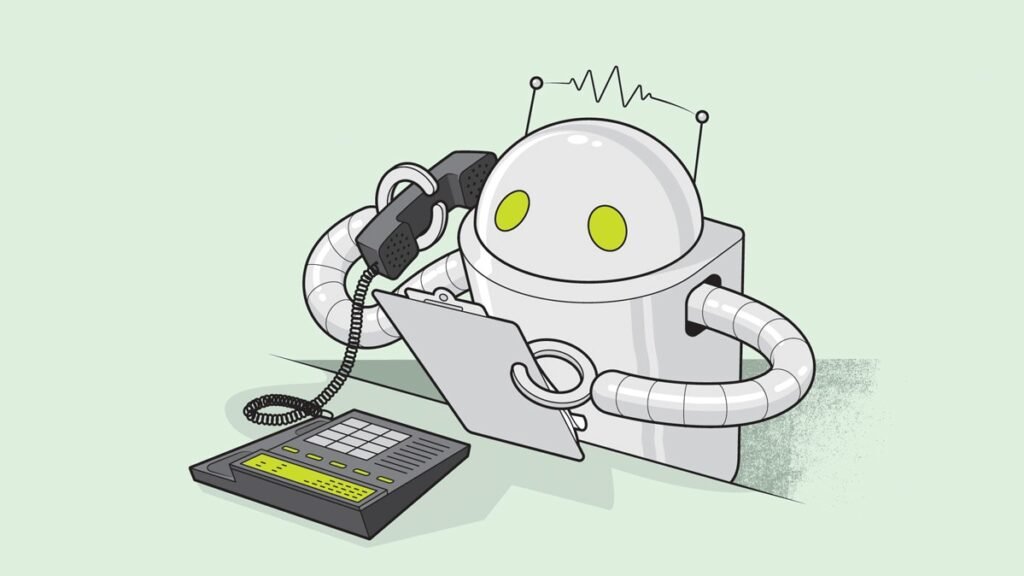
A large closing date in the combat to beat returned these traumatic robocalls is coming June 30. As of that date, each important voice company in the US, which includes telephone businesses AT&T, Verizon and T-Mobile and cable company Comcast, will have to enforce a technological know-how referred to as Stir/Shaken.
That’s excellent information for every body whose cellphone has been jangling with bogus cellphone calls involving health-related scams, expiring vehicle warranties and faux banks presenting nonexistent interest-rate reductions for deposit cards. For years, the scourge of unlawful robocalls has plagued the public. It’s the No. 1 patron criticism and a pinnacle precedence at the Federal Communications Commission.
US shoppers have acquired simply below 22 billion robocalls in the first 5 months of the year, on tempo to hit over fifty two billion robocalls for the year, in accordance to YouMail, a organization specializing in blocking off robocalls.
Robocalls use computerized dialers and recorded messages. To be fair, now not all robocalls are horrific or annoying. Some corporations and public entities use robocalls to talk vital information. For example, your pharmacy may additionally use an automatic recording to inform you your prescription is equipped to be picked up, or your kids’ college may additionally be alerting you to a snow day. These are reputable robocalls, and they require that customers signal up to get hold of them.
Then there are the unlawful robocallers. Because robocalls are inexpensive to make, they’ve been exploited by using scammers all over the world, who use them to defraud billions of bucks from Americans each and every year. The hassle has gotten so awful that many of us do not reply the telephone when it rings, specially if it is an unfamiliar variety on the caller ID. All too often, scammers hide their telephone numbers to trick human beings into answering.

An cease to these demanding and highly-priced calls may want to be on the horizon thanks to the implementation of Stir/Shaken, which will require voice companies to confirm the place calls are coming from. That’s the place the FCC’s June 30 cut-off date comes in. To assist you get a manage on that and different efforts to stamp out robocalls, CNET has put collectively this FAQ.
What’s Stir/Shaken?
“Stir” stands for “secure phone identification revisited,” and “Shaken” for “signature-based managing of asserted statistics the use of tokens.” Stir is the technical protocol, and Shaken is the framework with the aid of which calls can be tracked in the new robocall mitigation database.
The way it works is that Stir/Shaken technological know-how ensures that calls visiting via cellphone networks have their caller ID “signed” as legit by way of originating carriers and validated by using other carriers earlier than the calls attain you. In short, the science authenticates a smartphone call’s foundation and makes sure the statistics on the Caller ID matches.
What’s ‘caller ID spoofing’?
Spoofing is when callers cover their identification through intentionally falsifying the records transmitted to your caller ID display. Scammers do this to make calls much less effortlessly traceable. Also, through the usage of so-called neighbor spoofing, which makes it show up as although the wide variety is a neighborhood one you may additionally already be aware of or trust, scammers attempt to trick you into choosing up a call.
Is spoofing illegal?
Under the Truth in Caller ID Act, the FCC’s policies limit any individual or entity from transmitting deceptive or inaccurate caller ID records with the intent to defraud, reason harm, or wrongly achieve whatever of value. Spoofing is not unlawful if there is no intent to motive harm.
Illegal spoofers can face fines of up to $10,000 per violation of the law.
Spoofing it truly is meant to disguise identification can be accredited beneath sure circumstances. For example, regulation enforcement organizations working on cases, victims of home violence, or docs wishing to talk about personal scientific things might also all be exempt from these rules.
What’s the Traced Act? How will that quit robocalls?
The Traced (Telephone Robocall Abuse Criminal Enforcement and Deterrence) Act, was once signed into regulation in December 2019 by using President Donald Trump. It essentially makes compliance with the Stir/Shaken technological know-how obligatory for all voice carrier providers.
The regulation directed the FCC to come up with policies to require voice vendors to put in force the technological know-how inside 18 months.
What’s the June 30 closing date about?
The FCC has set a closing date of June 30 for agencies that supply telephone provider to enforce Stir/Shaken, the name verification gadget that’ll make it tougher for scammers to cover their numbers. Phone organizations will additionally have to put up robocall prevention techniques in a public database.
The application used to be created in late 2019 by using the Traced Act. The FCC launched the requirements in March 2020, and it set a cut-off date for provider vendors to comply by using the cease of June 2021.
Major smartphone companies, such as AT&T, Verizon and T-Mobile, as properly as cable company Comcast, have stated they’re imposing Stir/Shaken. Multiple carriers requested for an extension, however the FCC denied these petitions in March.
Does this imply we will see a large drop in robocalls come July 1?

That’s the hope. But sadly, it probable may not be the reality. For one thing, some carriers have already been imposing Stir/Shaken. So the cut-off date may not always mark a tough switchover for most telephone companies. It’s a technological know-how and framework they’ve been imposing and deploying for a while.
The 2d cause is that scammers are continually coming up with new approaches to make unlawful robocalls. The unhappy fact is that making these calls is affordable and scamming humans is lucrative.
“It ends up being a recreation of whack-a-mole,” FCC Commissioner Brendan Carr stated in an interview with CNET in May. “So the long-term answer is nevertheless difficult. We’ll see how tons growth we can make.”
Will all carriers be required to hit this deadline?
Previously, the FCC had given small providers, these with fewer than 100,000 subscribers, till June 30, 2023, to put in force Stir/Shaken. The extension would enable smaller companies to consider the implementation prices and diagram deployment. But the FCC stated in April that there is proof a massive quantity of unlawful robocalls are coming from a subset of smaller providers, so the employer has proposed bumping up the closing date for these carriers via a full year.
What’s the authorities been doing to end unlawful robocalls?
The Department of Justice, the Federal Trade Commission and the FCC have labored collectively to fight robocalls. In March 2020, the DOJ gained an injunction towards two web cellphone companies that allegedly transmitted heaps of hundreds of thousands of calls to consumers.
What about the FCC?
The company has stepped up its enforcement, sending cease-and-desist letters to carriers that facilitate rip-off calls and imposing fines on unlawful robocallers. In one case, the FCC fined Texas telemarketers $225 million for spoofing roughly 1 billion robocalls.
Though the June 30 date is the closing date for carriers to put into effect Stir/Shaken, many carriers have already began the use of the technology. As these carriers have gotten Stir/Shaken working, it is gotten less difficult for the FCC to tune down carriers that illegally transmit calls. And it should doubtlessly get even less difficult as all carriers meet the closing date for implementation.
“We need to use each device we have to get these junk calls off of our networks,” appearing FCC Chair Jessica Rosenworcel stated in a assertion in May. “From these new cease-and-desist letters to STIR/SHAKEN implementation to massive fines and our robocall mitigation database, we are going to do the whole thing we can to shield customers from these nuisance calls,” Rosenworcel said. “We’re now not going to end till we get robocallers, spoofers, and scammers off the line.”
Carr cited in an interview with CNET in May that there is not a silver bullet for stopping these calls. Multiple applied sciences and insurance policies are wanted to tackle this issue, he said.
“I assume mixed it is what’s going to destroy the lower back of these robocallers,” Carr said. “If it doesn’t, then we have acquired to proceed to innovate and locate extra applied sciences that are going to end this, due to the fact truely the horrific actors that are out there have a income reason to discover a way round these systems.”
Is there any greater motion in Congress to get tougher?
Earlier this month, Senate Majority Leader Chuck Schumer and Sen. Kirsten Gillibrand, each Democrats from New York, added the Deter Obnoxious, Nefarious, and Outrageous Telephone (Do Not) Call Act to amplify penalties for people and organizations deliberately preying on buyers thru unsolicited and unlawful robocalls.
The consignment would:
Clarify violations underneath the Telephone Consumer Protection Act, which outlaws robocalls.
Allow jail phrases of up to one 12 months for willfully and knowingly violating the TCPA.
Allow jail phrases of up to three years for aggravated violations of the TCPA.
Double the most penalties underneath the TCPA for falsifying caller ID, from $10,000 to $20,000.
“Americans are determined to ‘hang up the phone’ and the DO NOT Call Act is the antidote we want to reduce the wire on ‘spoofing’ scams that goal specifically aged New Yorkers,” Schumer stated in a statement.
Gillibrand added, “This essential piece of law will supply the FCC the equipment wanted to fight scammers who grossly violate the Telephone Consumer Protection Act and, all too often, goal and defraud senior Americans.”


